
 Flash News
Flash News
Accident at "Shkalla e Tujanit", truck overturns in the middle of the road, driver injured
Vlora by-pass, work delays and cost increases
Milan are expected to give up on the transfer of Granit Xhaka
Inceneratori jashtë funksionit, përfshihet nga flakët fusha e mbetjeve në Elbasan
Accident on the Lezhë-Shëngjin axis, one injured
Does the European Union really uphold its fundamental values in the Balkans?
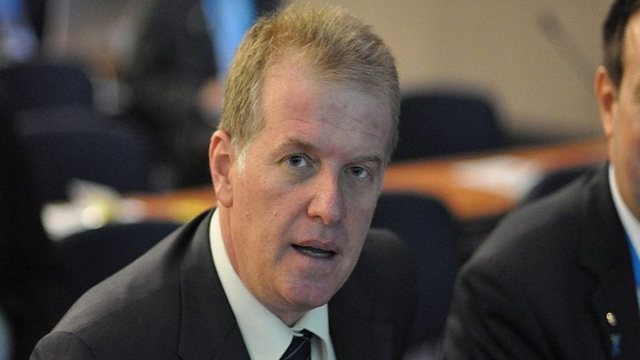
By Genc Pollo
The visit of Enlargement Commissioner Marta Kos to Albania on 13 and 14 March appears to have been another missed opportunity for the European Commission to defend the values of Article 2 of the Lisbon Treaty (practically the EU constitution) and the Copenhagen Criteria (basic conditions for EU membership) such as democracy, the rule of law and human rights and freedoms.
While most think tanks and independent observers monitoring the Balkans have reached a consensus that during the 12 years of Prime Minister Edi Rama’s rule, the country has dramatically experienced a “backsliding of democracy,” Commissioner Kos expressed no concern, nor even hinted at this issue. Nothing was said about problems with media freedom, about the violation of the opposition’s parliamentary rights, about criminality in high government offices, etc. during her press conference with PM Rama. Likewise, nothing following her visit to Albania.
Ms. Kos had only praise for the reforms undertaken and those promised by the Rama government; according to her, this is the aim of concluding the 35 chapters of the EU accession negotiations by 2027. Interestingly, the Rama government's "Plan for the EU" foresees all the difficult measures in 2027, while the previous years, 2025 and 2026, are generally free of burdens.
Her three main assessments were:
1. “You have such stability.” This brings to mind the phenomenon of “stabilocracy,” so much criticized by democracy activists.
2. “You align 100% with the EU’s Foreign and Security Policy.” True, but this has always been the case in Albania, as it is based on a broad political and social consensus.
3. “Your regional cooperation is very good.” True, both now and before Rama, but with one problem: Rama has had an agreement with Vučić regarding Kosovo, bypassing Pristina; as a result, his relations with Kosovo have deteriorated and are currently at their lowest point since Kosovo’s declaration of independence.
To be fair, the European Commission’s annual reports on Albania in the last two years have had an extra dose of realism; but let’s not forget that for a dozen years these reports have too often been a Potemkin façade for problems of legality and democracy. The EU has prevented some of the worst deviations of the Rama government, such as the massive granting of “golden passports” and the fiscal-criminal amnesty, which would have brought problems for the EU as well. But these interventions remain rare and generally ineffective.
Ms. Kos remained silent on the issue of MP Xhaçka’s mandate, for which the EU Delegation in Tirana, in a rare case, called for respect for the rule of law. Rama has consistently refused to implement the Constitutional Court’s decision and allow the Assembly to request a judicial review of the matter (a consolidated legal practice). Ms. Xhaçka, a former Minister of Defense and Foreign Affairs, is suspected of having illegally benefited from public assets. Similar cases have previously been reviewed and in some of them, the Court has annulled the mandate. Faced with pressure, the ruling party tried to buy time by seeking the opinion of the Venice Commission, a respected body of the Council of Europe that provides advice on constitutional matters. When the Opinion came out in favor of the Court, PM Rama refused again, prompting another statement from the EU Delegation. However, this seems to have been forgotten now.
The Xhaçka case and similar cases may be mentioned in the Commission’s periodic reports, but few people read them and even fewer manage to understand their bureaucratic jargon. Therefore, they do not become part of the public debate, where forces defending “European values” can refer to the EU’s positions.
The 2027 deadline for the conclusion of accession negotiations has also been proposed by Ms. Kos for Montenegro, which in 12 years of accession talks has closed only three easier chapters out of a total of 35. How Montenegro and the EU would be able to qualitatively conclude the remaining 32 chapters within two years needs to be explained. The same question must be asked for Albania. “Conclusion of negotiations in 2027” is a nice narrative, but Commissioner Kos has not yet provided an explanation.
At the press conference, Ms. Kos presented Prime Minister Rama with a basketball jersey with the same number as the jersey he wore in his youth. This gift comes at a time when the campaign for the parliamentary elections has already begun. The real criterion for a functioning democracy in countries like Albania is the ability to change power through elections. This has become difficult, if not impossible: OSCE reports point to an orgy of vote-buying, voter intimidation, massive misuse of state resources, involvement of criminal groups by the ruling party, etc. Ms. Kos’s gift to Rama has been added to this notorious list.
Moreover, unlike previous visits by EU Commissioners, Ms. Kos avoided meeting with the opposition leader; she only met with its senior representatives in the Assembly; unlike previous meetings, she did not make any statements or posts about this meeting.
That is enough to understand the real contribution of the European Commission to democracy in Albania and perhaps in the Western Balkans.
Adapted from NE Global/ADN
Latest news








Golem and Qerret without water at the peak of the tourist season
2025-07-01 21:09:32

Euractiv: Italy-Albania migrant deal faces biggest legal challenge yet
2025-07-01 20:53:38
BIRN: Brataj and Fevziu victims of a 'deepfake' on Facebook
2025-07-01 20:44:00

Vlora by-pass, work delays and cost increases
2025-07-01 20:24:29



Milan are expected to give up on the transfer of Granit Xhaka
2025-07-01 19:41:25


The silent but rapid fading of the towers' euphoria
2025-07-01 18:58:07
Donald Trump's daughter says 'goodbye' to June with photos from Vlora
2025-07-01 18:48:47

Tirana vote recount, Alimehmeti: CEC defended manipulation
2025-07-01 18:15:05

Left Flamurtari, striker signs with another Albanian club
2025-07-01 17:43:14
Accident on the Lezhë-Shëngjin axis, one injured
2025-07-01 17:19:35
June temperature records, Italy limits outdoor work
2025-07-01 17:03:15

Meet Kozeta Miliku, named one of the top five scientists in Canada
2025-07-01 16:32:12
"Arsonist" arrested for repeatedly setting fires in Vlora (NAME)
2025-07-01 16:29:45

The ecological integrity of the Vjosa River risks remaining on paper
2025-07-01 16:09:40
Heat Headache/ Causes, Symptoms and Measures You Should Take
2025-07-01 16:01:13
UN: The world must learn to live with heat waves
2025-07-01 15:54:50

Three cars collide in Tirana, one of them catches fire
2025-07-01 15:38:16

Shehu: Whoever doesn't want Berisha, doesn't want the opposition 'war'!
2025-07-01 15:19:20
Berisha requests the OSCE Assembly: Help my nation vote freely
2025-07-01 15:11:46
Be careful with medications: Some of them can harm your sex life
2025-07-01 15:00:32
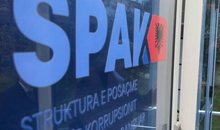
'Golden Bullet'/ Lawyers leave the courtroom, Altin Ndoc's trial postponed again
2025-07-01 14:44:52
EU changes leadership, Kosovo in a number of places
2025-07-01 14:40:01
Should we drink a lot of water? Experts are surprised: You risk hyponatremia
2025-07-01 14:30:20



Lëpusha beyond Rama's postcards: A village that is being silently abandoned
2025-07-01 13:41:56
Scorching temperatures in France close the Eiffel Tower
2025-07-01 13:29:35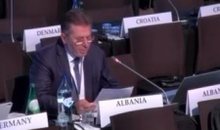
Media: China, Iran and North Korea, a threat to European security
2025-07-01 13:20:12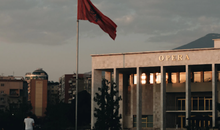
Albania drops in global index: Less calm, more insecure
2025-07-01 13:09:35
Road collapses, 5 villages in Martanesh risk being isolated
2025-07-01 13:03:04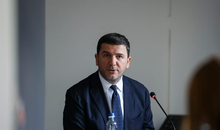

Këlliçi: Opposition action to be decided in September
2025-07-01 12:48:49
Four tips for coping with the heat wave
2025-07-01 12:38:53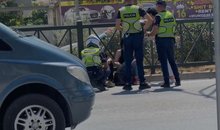
Car hits pedestrian on Transbalkan road
2025-07-01 12:27:09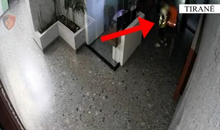
Authors of 9 robberies, Erjon Sopoti and Abdullah Zyberi arrested
2025-07-01 12:15:56

He abused his minor daughter, this is a 36-year-old man in custody in Fier
2025-07-01 11:50:34
The constitution of the Kosovo Assembly fails for the 40th time
2025-07-01 11:40:08




EU confirms support for the Western Balkans
2025-07-01 10:50:45
Serious in Fier! Father sexually abuses his minor daughter
2025-07-01 10:32:33
One year since the passing of the colossus of Albanian literature, Ismail Kadare
2025-07-01 10:25:26


They supplied the 'spaçators' with drugs, two young men are arrested in Tirana
2025-07-01 09:54:09
Europe is "scorching", how dangerous are high temperatures?
2025-07-01 09:48:56


Nigel Farage in Albania: but why?
2025-07-01 09:13:12
Xama: The "Partizani" dossier is quite weak and without facts!
2025-07-01 09:04:47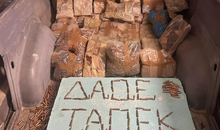

Foreign exchange, the rate at which foreign currencies are sold and bought
2025-07-01 08:35:39
Fabricators again warn of factory closures and job cuts
2025-07-01 08:21:30
Horoscope, what do the stars have in store for you today?
2025-07-01 08:08:59
Scorching hot, temperatures reaching 40°C
2025-07-01 07:57:12
Morning Post/ In 2 lines: What mattered yesterday in Albania
2025-07-01 07:42:59
Recount after May 11, Braho: I had no expectations for massive vote trafficking
2025-06-30 22:54:18

Second hearing on the protected areas law, Zhupa: Unconstitutional and dangerous
2025-06-30 22:18:46



Israel-Iran conflict, Bushati: Albanians should be concerned
2025-06-30 21:32:42

Fuga: Journalism in Albania today in severe crisis
2025-06-30 21:07:11
"There is no room for panic"/ Moore: Serbia does not dare to attack Kosovo!
2025-06-30 20:49:53

Temperatures above 40 degrees, France closes nuclear plants and schools
2025-06-30 20:28:42
Lavrov: NATO is risking self-destruction with new military budget
2025-06-30 20:13:54
Turkey against the "Bektashi state" in Albania: Give up this idea!
2025-06-30 20:03:24

Accused of sexual abuse, producer Diddy awaits court decision
2025-06-30 19:40:44


